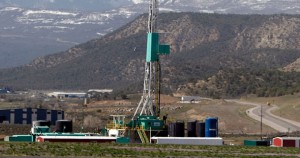 The Resource Conservation and Recovery Act (RCRA) of 1976 requires the safe disposal of solid waste and hazardous materials. In 1980, RCRA was amended to exempt waste from the production and development of oil and natural gas (E&P waste). In 1988, the EPA issued a Regulatory Determination further exempting oil and natural gas producers from RCRA’s most stringent safety requirements. This left the task of regulating disposal of these wastes to states, which they have done to varying degrees. Recent reports show the extent of the problem and highlight the potentially fatal consequences.
The Resource Conservation and Recovery Act (RCRA) of 1976 requires the safe disposal of solid waste and hazardous materials. In 1980, RCRA was amended to exempt waste from the production and development of oil and natural gas (E&P waste). In 1988, the EPA issued a Regulatory Determination further exempting oil and natural gas producers from RCRA’s most stringent safety requirements. This left the task of regulating disposal of these wastes to states, which they have done to varying degrees. Recent reports show the extent of the problem and highlight the potentially fatal consequences.
The regulatory determination was issued before fracking, which uses toxic materials, had become commonplace. Yet fracking remains exempt from RCRA’s Subtitle C standards for safe disposal of hazardous waste. Exempted E&P waste includes: drilling fluids and cuttings, produced water, used hydraulic fracturing fluids, rigwash, workover wastes, tank bottom sludge, glycol-based dehydration wastes, amine-containing sweetening wastes, hydrocarbon-bearing soil, and many other individual waste products.
In its 1988 Regulatory Determination, EPA admitted that E&P wastes contain toxic substances that endanger both human health and the environment and cause cancer. Despite noting that the benzene, phenanthrene, lead, arsenic, barium, antimony, fluoride, and uranium found in E&P wastes are of major concern and present at “levels that exceed 100 times EPA’s health based standards” oil and gas companies are currently excused from requirements to dispose of them safely.
Do you think that EPA should regulate oil and gas waste under subtitle C of RCRA? What are the implications and is this feasible? Are there other environmental laws which currently do not apply to oil and gas companies that should be made to cover the oil and gas industry?
Does Congressman Cartwright have any plans to introduce legislation that would restrict the current oil and gas exemption under RCRA? And what, in Mr. Marcus assessment, would be the economic… Read more »
What might be helpful in this discussion is an attempt to monetize the costs of implementing regulatory requirements for the oil and gas industry under RCRA and the costs, largely… Read more »
I would be interested to know exactly what type of “waste” the oil and gas industry produces. From what I have seen, all of the chemicals they produce ultimately become… Read more »
Hydraulic fracking has a great potential to turn the US from a major petroleum importer to a petroleum producer. But the question is a bit premature. The federal government has… Read more »
I’m not qualified to comment on the legal issues. What I can say for sure is that regulation of some sort is needed, because the least-cost practices for E&P would… Read more »
The political realities of applying RCRA to oil and gas extraction makes this seem like a near impossible goal. It’s not clear that EPA can unwind the exemption without congressional… Read more »
I agree that the political realities in 2013 and probably until 2016 means that it is unlikely that RCRA’s exemptions to regulation of drilling wastes as hazardous waste will be… Read more »
I believe that some regulation is necessary to eliminate the elements of waste that will cause the worst long term damage but in truth I believe that the trump card… Read more »
The consensus of foregoing comments is on the gloomy side for two reasons: The answer to the question of balanced regulation of hazardous materials on the back end of fossil… Read more »
While some commentators feel that state regulation is sufficient, I’m skeptical. For example, take the recent case of the spilling of fracking fluids containing, inter alia, benzene into Parachute Creek… Read more »
I agree with the position of Prof Will Burns. Furthermore all industries should be treat in the same way related to the Environmental Regulation. Regulation should not create exceptions that… Read more »
Yes, EPA should regulate oil and gas waste under subtitle C of RCRA. There is documented toxicity of oil and gas waste, including produced water, used fracking fluid (aka flowback), used… Read more »
[…] None of the respondents argued against federal regulation of oil & gas waste, though some suggested that a lack of both political will and reliable data could get in… Read more »
The auto and truck industry was told to reduce emissions, and they have done and are continuing to do this by increasing these vehicles mileage, and these improved vehicles are… Read more »